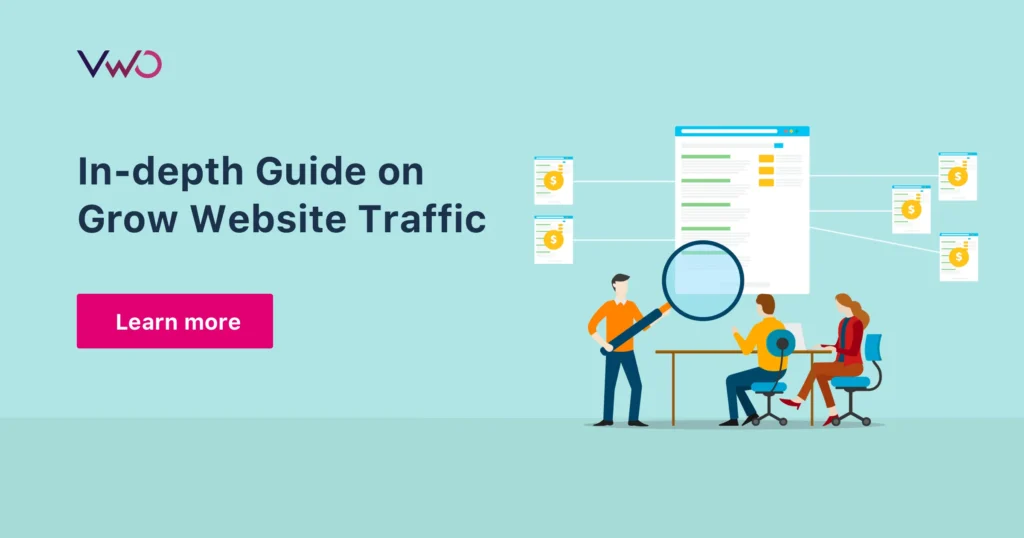Are you struggling to get your website the attention it deserves? Is your fantastic content not reaching the audience it should? If the answer is yes, you’re not alone. Many website owners face the challenge of driving organic traffic to their sites. In this article, we’ll delve into the world of buying website traffic, exploring how it can impact your SEO and search rankings. Buckle up, as we take you on a journey to enhance your online visibility and engagement.
Introduction
Picture this: You’ve poured your heart and soul into creating a remarkable website. Your content is top-notch, and your products or services are second to none. But there’s a catch – your website isn’t receiving the attention it deserves. This is where buying website traffic comes into play.
The Importance of Website Traffic for SEO
Website traffic serves as the lifeblood of your online presence. It’s not just about the numbers; it’s about attracting genuine visitors who are interested in what you offer. From an SEO perspective, traffic is a major ranking factor.
Understanding Organic vs. Paid Traffic
Before delving into the intricacies of buying website traffic, let’s differentiate between organic and paid traffic. Organic traffic comes from search engines, while paid traffic is generated through advertisements.
Is Buying Website Traffic Ethical?
The question of ethics often arises when discussing paid traffic. While some consider it a legitimate strategy, others raise concerns about its authenticity.
Types of Paid Traffic Services
Various options are available when it comes to purchasing website traffic. Pay-Per-Click (PPC) advertising, social media ads, and influencer collaborations are some popular choices.
Pay-Per-Click (PPC) Advertising
PPC ads, displayed on search engines and websites, charge you based on the number of clicks. They can provide immediate results but require careful management.
Social Media Advertising
Social media platforms offer advanced targeting options to reach specific audiences. Paid ads can help increase your reach and engagement.
Influencer Collaborations
Partnering with influencers can expose your website to their followers, driving targeted traffic.
The SEO Connection: How Traffic Affects Rankings
The relationship between website traffic and SEO is intricate. Metrics like dwell time, click-through rates, and backlinks play a crucial role.
Dwell Time and Bounce Rate
Search engines interpret longer dwell times and lower bounce rates as signals of quality content.
Increased Click-Through Rates (CTR)
High CTR indicates that your content is relevant and engaging, leading to improved search rankings.
Backlinks and Referral Traffic
Organic traffic often brings valuable backlinks and referral traffic, contributing to your website’s authority.
Factors to Consider Before Buying Website Traffic
Purchasing website traffic requires thoughtful planning and consideration of various factors.
Target Audience
Identify your target audience and tailor your traffic strategy to reach them effectively.
Quality of Traffic
Ensure the traffic you buy is relevant and likely to engage with your content.
Budget and ROI
Set a clear budget and measure your return on investment to assess the effectiveness of your strategy.
Choosing the Right Traffic Service Provider
Selecting a reputable traffic service provider is essential to achieve your desired results.
Reputation and Reviews
Research and choose providers with positive reviews and a solid reputation.
Transparent Analytics and Reporting
Access to accurate and transparent analytics will help you track the performance of your purchased traffic.
Customization Options
Look for providers that offer customization to align the traffic with your website’s goals.
The Process of Buying Website Traffic
Follow a systematic approach when purchasing website traffic.
Setting Clear Objectives
Define your goals and objectives to ensure your traffic-buying strategy aligns with your overall business strategy.
Selecting the Appropriate Traffic Package
Choose a package that suits your needs and targets your desired audience.
Monitoring and Optimization
Continuously monitor your traffic’s performance and optimize your strategy based on data insights.
Common Mistakes to Avoid
While buying website traffic can be advantageous, there are pitfalls to watch out for.
Ignoring SEO Best Practices
Don’t neglect organic SEO efforts while focusing on paid traffic.
Disregarding User Experience
Ensure your website provides a seamless and enjoyable experience for visitors.
The Road to Long-Term SEO Success
Buying website traffic is just one piece of the puzzle. Achieve lasting SEO success through these strategies.
High-Quality Content Creation
Create valuable, informative, and engaging content to attract and retain visitors.
On-Page SEO Optimization
Optimize on-page elements to enhance your website’s search visibility.
Building Organic Backlinks
Focus on earning organic backlinks from authoritative sources to boost your website’s credibility.
Conclusion
Buying website traffic can provide a quick boost to your online visibility and engagement. However, it’s crucial to approach this strategy with careful planning and a focus on long-term SEO goals.
FAQs
- Is buying website traffic against Google’s guidelines? No, buying website traffic is not inherently against Google’s guidelines. However, it’s essential to ensure that the traffic is of high quality and doesn’t violate any rules.
- Can purchased traffic improve my search engine rankings? While purchased traffic can increase your website’s visibility, sustainable search engine rankings require a holistic SEO approach.
- What’s the difference between organic and paid traffic? Organic traffic comes from search engines, while paid traffic is generated through paid advertisements.
- How can I measure the effectiveness of purchased traffic? Utilize tools like Google Analytics to track metrics such as conversion rates, bounce rates, and engagement.
- Is buying website traffic a guaranteed way to succeed? Buying website traffic is a strategy that can complement your overall SEO efforts, but success depends on various factors, including targeting and content quality.
